In today’s fiercely competitive world, every step we take matters. Whether it’s a personal decision or a strategic corporate move. Every choice carries weight. In the corporate arena, every decision and strategy implemented by managers can either make or break the future of the company. That’s where strategic management comes in. It guides the managers and employees alike towards a brighter and a more successful future.
What is Strategic Management?
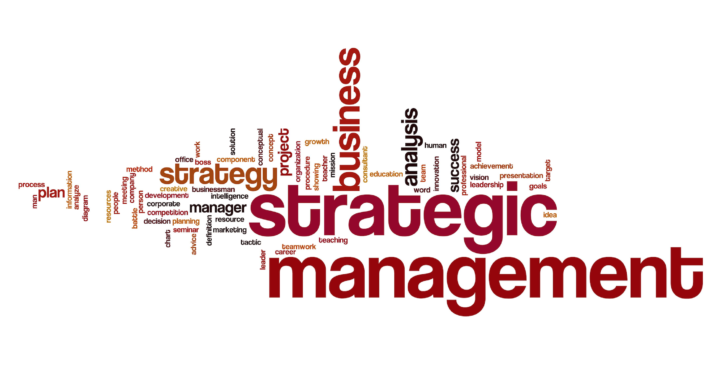
Ever wondered how top companies stay ahead in business? It highly depends on their strategic management! This crucial concept involves a bundle of strategies, decisions, and actions taken by managers to boost the company’s performance and achieve its goals. Essentially, strategic management includes identifying and describing the strategies to provide the organization a competitive edge. Managers set goals, develop strategies, and put them into action. Thus, making sure that every move is calculated and purposeful.
Strategic management isn’t just about making decisions. Rather, it’s about the entire process. This includes strategy evaluation, resource allocation, competition analysis, and internal structure assessment, etc. This 360-degree approach helps managers ensure the smooth and efficient operation of the organization. Additionally, it also keeps employees satisfied. Thereby, making the best use of available resources.
Why is Strategic Management Important?
You might be thinking, “Why is strategic management so crucial?” Let’s break it down.
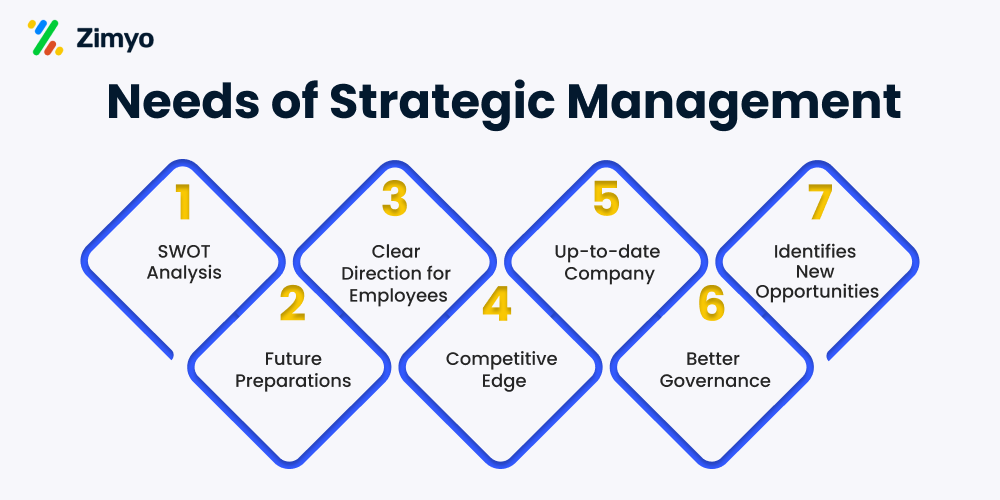
1. SWOT Analysis of the company
Strategic management is important as it helps in identifying opportunities, strengths, and weaknesses. This is done through a detailed analysis of the company’s internal structure. This analysis helps in recognizing the unrealized potential of the company. Resultantly, providing new ways to implement existing strategies.
2. Future preparations
In a dynamic business environment, adaptation is the key. Strategic management prepares the company for the future challenges by evolving its business model and strategies in order to keep up with frequent changes in the business landscape.
3. Clear Direction for Employees
Strategic management sets clear goals for employees and provides a way forward. This clarity increases employee alertness and engagement. Thus, allowing them to bring more value to their work.
4. Gaining a Competitive Edge
Commitment to strategic plans strengthens an organization’s competitive position. Managers with in-depth knowledge of competitors can make timely business decisions. In turn, preparing for future opportunities and risks.
5. Keeping the Company Updated
Strategic management keeps managers engaged and updated with industry trends. Resultantly, helping the company adapt and meet customer needs effectively.
6. Better Governance
It also involves governance, ensuring managers handle employees and business operations effectively, while also contributing positively to the economy and society.
7. Identifying New Opportunities
Strategic management identifies new opportunities for business growth. Therefore, finding new ways to explore the unexplored markets and opening doors to new avenues for the organization.
Regain your competitive edge!
Goals of Strategic Management
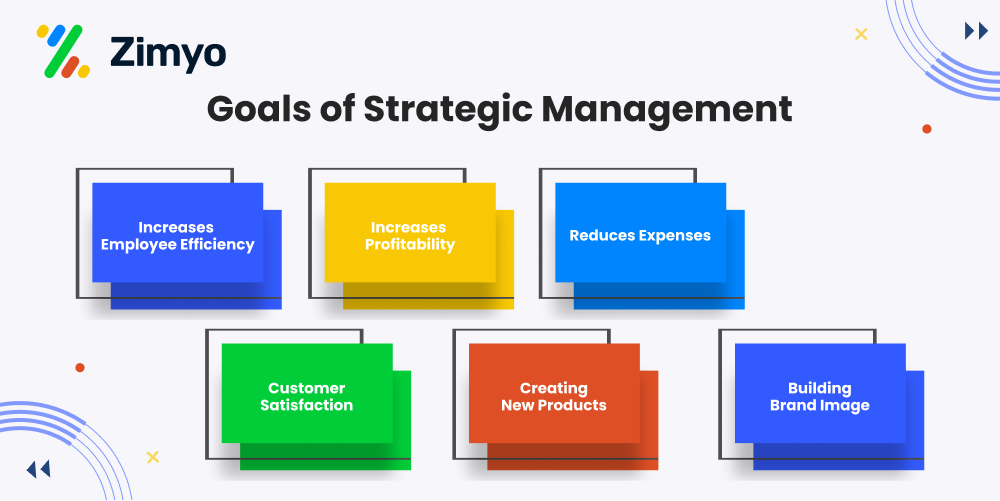
Strategic goals are long-term objectives set by companies for their future. These goals provide direction and clarity. Thus, reducing confusion and increasing efficiency. Typically, these big goals are divided into sub-goals and assigned to division managers. To achieve these goals, managers develop strategic plans. Thereby, ensuring steady progress.
Here are some primary strategic goals:
A) Increasing Employee Efficiency
Involving employees in strategy implementation gives them a sense of belonging and engagement. Hence, motivating them to work harder. We must say, increased efficiency benefits overall performance management.
B) Increasing Profitability
Strategic management ensures optimal use of financial and human resources. Thereby, leading to increased profitability.
C) Reducing Expenses
It helps identify unnecessary expenses. Therefore, allowing managers to decide on worthwhile investments. Ultimately, reducing costs.
D) Ensuring Customer Satisfaction
It is said that happy customers are the cornerstone of a successful business. Strategic management focuses on satisfying existing customers and attracting new ones.
E) Creating New Products or Services
Adapting to changing customer demands is crucial. Strategic management guides companies in developing new products or services to meet these needs.
F) Building Brand Image
A strong brand name attracts customers and builds market trust. Strategic management helps enhance the company’s brand image.
Step-wise Process
Just like any other process, strategic management follows specific steps to ensure success:
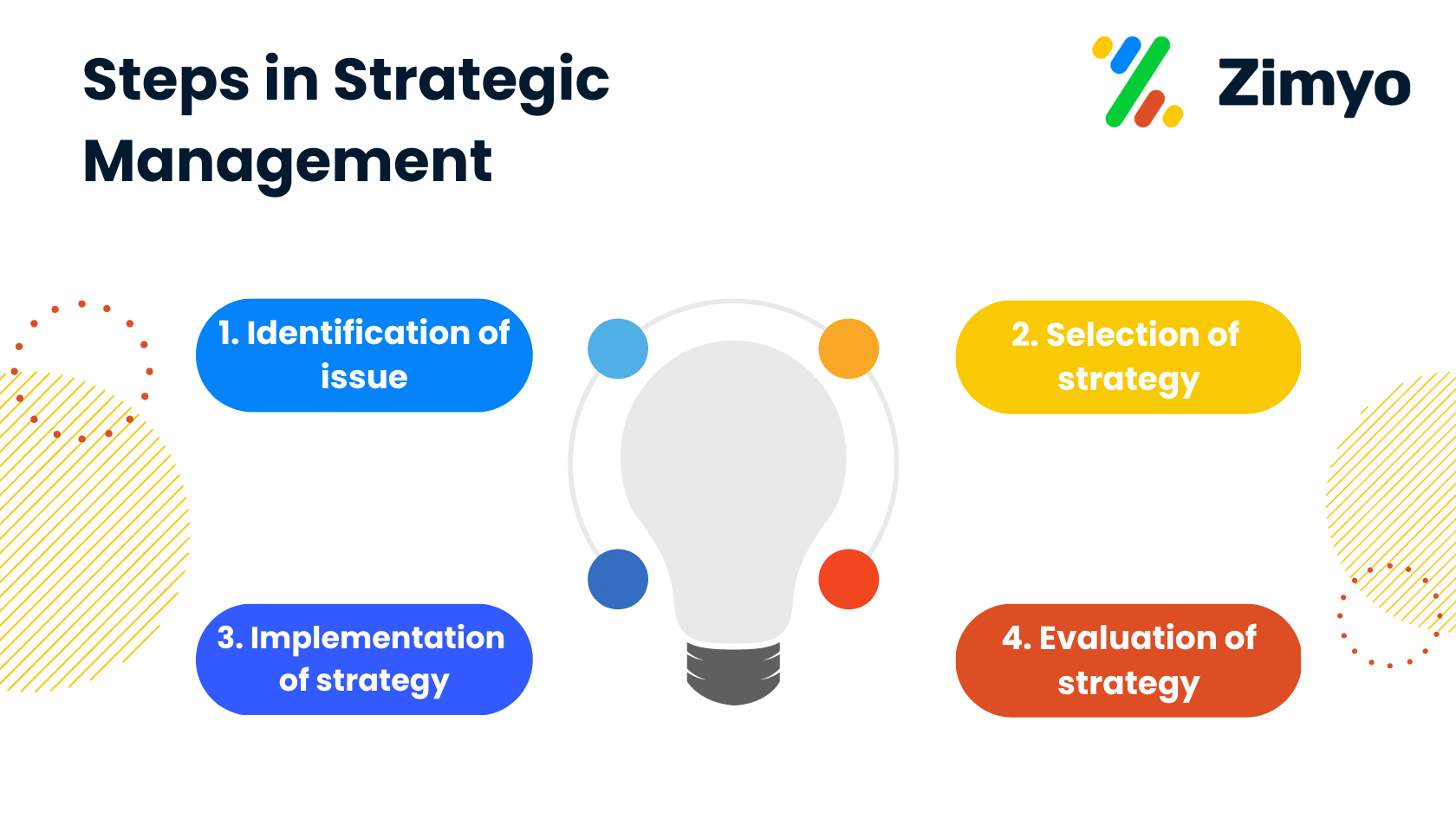
Step 1: Identification of Issues
This step involves carefully reading the environment to identify issues, analyzing threats and opportunities, and preparing an environmental profile.
Step 2: Selection of Strategy
Here, managers generate and evaluate potential strategies, aiming to find the most suitable one to address the identified problem.
Step 3: Implementation of Strategy
This phase focuses on creating an organizational climate conducive to executing the chosen strategy.
Step 4: Evaluation of Strategy
After implementation, it’s crucial to assess whether the strategy is delivering the desired results. Maintaining a suitable information system helps in evaluating effectiveness.
Now, Let’s Understand Deeper!
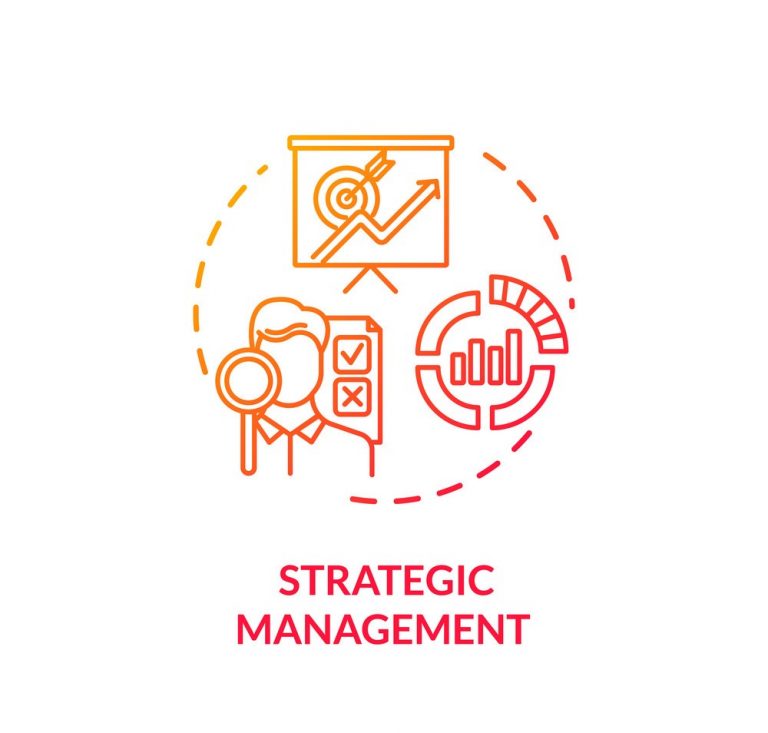
Think about some of the top companies worldwide – Apple, Google, Amazon. What do they have in common? They all excel in strategic management! By consistently analyzing their internal and external environments, setting clear goals, and adapting to market trends, these giants maintain their leading positions. For instance, Apple’s constant innovation and strategic product launches keep it at the forefront of technology.
Real-World Example: Apple Inc.
Apple Inc. provides a textbook example of strategic management. Their SWOT analysis revealed strengths in innovation and brand loyalty, opportunities in expanding markets, and potential threats from competitors. By setting clear strategic goals – like increasing market share through continuous product development – Apple has remained a market leader. They efficiently utilize resources, reducing costs while maximizing profits. Apple’s strategic approach to customer satisfaction ensures that every product launch meets consumer expectations, maintaining high brand loyalty and a strong market position.
Quantitative Data Speaks Volumes
Let’s go through some data to understand the impact of strategic management:
- Companies with well-defined strategic management processes report 20-30% higher profitability compared to those without.
- Strategic management leads to a 40% increase in employee engagement and productivity.
- Businesses implementing strategic management are 50% more likely to achieve their long-term goals.
- Organizations that adapt to market trends through strategic management experience a 25% increase in customer satisfaction.
The Crux
Strategic management is the backbone of any successful organization. By identifying opportunities, setting clear goals, and adapting to market changes, companies can achieve sustained growth and a competitive edge. Remember, it’s not just about making decisions; it’s about a continuous, dynamic process that evolves with the business environment.
So, what’s your next move? Embrace strategic management, and watch your company soar to new heights!
Stay tuned for more insights on how you can implement strategic management practices in your organization. Let’s embark on this journey towards success together!






